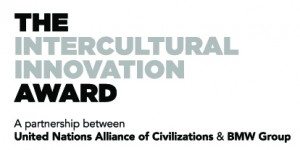One year ago, in Christchurch, on the morning of March 15, 2019, Serdar Durdyev woke up from a disturbing dream. He had been confined in a small space, the size of his body, almost like a coffin, unable to move his limbs. Above him were a series of holes, and someone breathing above him, while his entire body trembled. He says it felt like torture.
Durdyev is not one for premonitions. He is a civil engineer by trade, he teaches at the University of Christchurch, and his speech is peppered with physics analogies and a rationalist sensibility. So that morning, he shrugged off the dream and went about his usual routine. He performed his morning ablutions, had breakfast with his wife and two sons, went to the university for work and in the afternoon, he made his way to the Al Noor mosque.

This is the same mosque he had been attending each Friday for the past two years since he had arrived in Christchurch. This is the same mosque, which hours later, would become infamous as one of the sites for the deadliest mass shooting in New Zealand. This is the same mosque where he would escape the gun-man by hiding behind a small partition and the wall, wedged between a space no larger than his body, his entire body trembling as he looked up above him, to the small holes in the partition wall from where he could hear the gunshots; just like in his dream.
He says one year later, he is only able to truly understand the significance of the event.
This week marks the one-year anniversary of the Christchurch terrorist shooting which claimed fifty-one lives. The 28-year-old Australian shooter was a self-proclaimed white supremacist, who allegedly outlined his intentions in an online document online before carrying out the attack, and was found guilty of shooting men, women and children as they prayed at two of Christchurch’s mosques, the Al Noor mosque and the Linwood Islamic Centre.
Durdyev is originally from Turkmenistan, part of the former Soviet Bloc, where approximately 93% of the population is Muslim. He left when he was a teenager for career prospects, and spent a decade traveling and living in Istanbul, where he met his wife. He worked in Cambodia, and later arrived in Christchurch in 2017, where he has since taught civil engineering. He says, he is a bit of a ‘rolling stone’ by nature and loves to travel and learn about new places and cultures.

He first began attending Al Noor Mosque as it was close to his home. He says while he attends every Friday, he is not so close to the community. Partly this is due to cultural differences. Raised in Turkmenistan, and then living in secular Turkey, he is not so devout and does not prescribe to many of requirements such as wearing a beard, and at work he keeps his religious beliefs to himself.
“I don’t look like a Muslim, but I don’t have to look like anything. It’s all inside yourself.”
He says this to explain some facts, why, for example, he does not see himself as a key community player and has not wanted to come forward and has tried to put the event aside.
He says two weeks before the event, he actually noticed the Australian shooter in the crowd, but while he stood out, it was not so unusual to see new faces in the crowd, and he did not say anything.
“I noticed him in the first place, and only knew it was him later from the media, because he was praying very badly.”
It is only now, he realises the shooter had been coming to research the mosque for his upcoming attack.

On the day of the shooting, Durdyev arrived at the mosque early, and sat down in the middle of the recreation room. The day, he says pointedly, the Imam was giving a talk on the topic of Brotherhood and acceptance. Ten minutes into the sermon, he heard a sound and saw a small piece of plaster flying through the air. Durdyev, who had never heard a gunshot before, says at first, he thought it was an electrical malfunction. But when the sound came again and he heard shouting, he quickly moved and hid behind a partition.
There was a small gap between the floor at the partition, so he crouched onto the rim and held on with his thumbs so he could not be seen. He said the position was agony to hold for a long period and his body trembled. He was only two metres from the Exit point. He could see it in front of him.
But for a long time, he thought there were two shooters, as he heard a different gun (the shooter had changed weapons) and thought one was outside so he didn’t risk running. However, at one point of stillness between shots, a man who was hiding near him, decided to make a run for it, and Durdyev watched him get shot down in front of him.
He says it was not until he heard calls from police and shouts of people saying it was all clear, did he build up the courage to leave his hiding spot. But he still did not trust what he heard, and he says he hid behind an SUV and seeing all the roads were blocked, he decided to walk home, barefoot, as his Adidas sneakers were still at the mosque. It wasn’t until the following days, that he saw reports and understood what these attacks were about.

“I don’t like this word, islamophobia. What is the root cause of this problem? I believe it starts with racism. And this kind of person is not just Islamophobic, he is phobic to many people. It is fear and racism. It’s not about Islam. It’s about learning to accept others, without limiting yourself to the appearance of others.”
Durdyev has consciously chosen to continue his ‘normal’ life in the same manner as before the event. He did not take time off work. He did not tell people, except his close family, he had been there. Durdyev says it took many days before he even made a statement with the police, and at first, they did not believe him. It was only when they retrieved his Adidas shoes, did they understand he had been at the mosque on the day of the shooting.

Serdar has continued attending Al Noor Mosque, including in the lead up to the anniversary which put the site on high security alerts.
“I still go to the mosque. Because you cannot be in fear and you never know what is going to catch you. Even now, with the corona virus fear spreading through the news, you don’t know. You can’t escape the bullet on which your name is written. It may be in Al Noor Mosque, or it may be somewhere else. This is why I go to the same mosque.”
It is this inner-resilience that has made him strong for his family and why he now feels comfortable sharing his experience of that day. He says it is important for the individual, as well as the community level, to take their own steps in building love and acceptance.
“I believe (Prime Minister Jacinda Arden’s leadership) did something important. But what I believe is these kinds of solutions need to come from bottom to top. It’s like if you plant a tomato. It does not matter how much water and sun you give it, what if the soil is no good, it will not thrive. So, I believe it has to start from the bottom, its collaborative work. It is a social problem, not a political one.”
He says one year later, after the event, he has worked through things, and he is not angry.
“Newton said, every action has a reaction. This man’s action has had consequences and will not disappear. But I am trying to be responsible for my own reactions and to live a life without anger or despair. That would eat me up, and give more power to what happened.”


